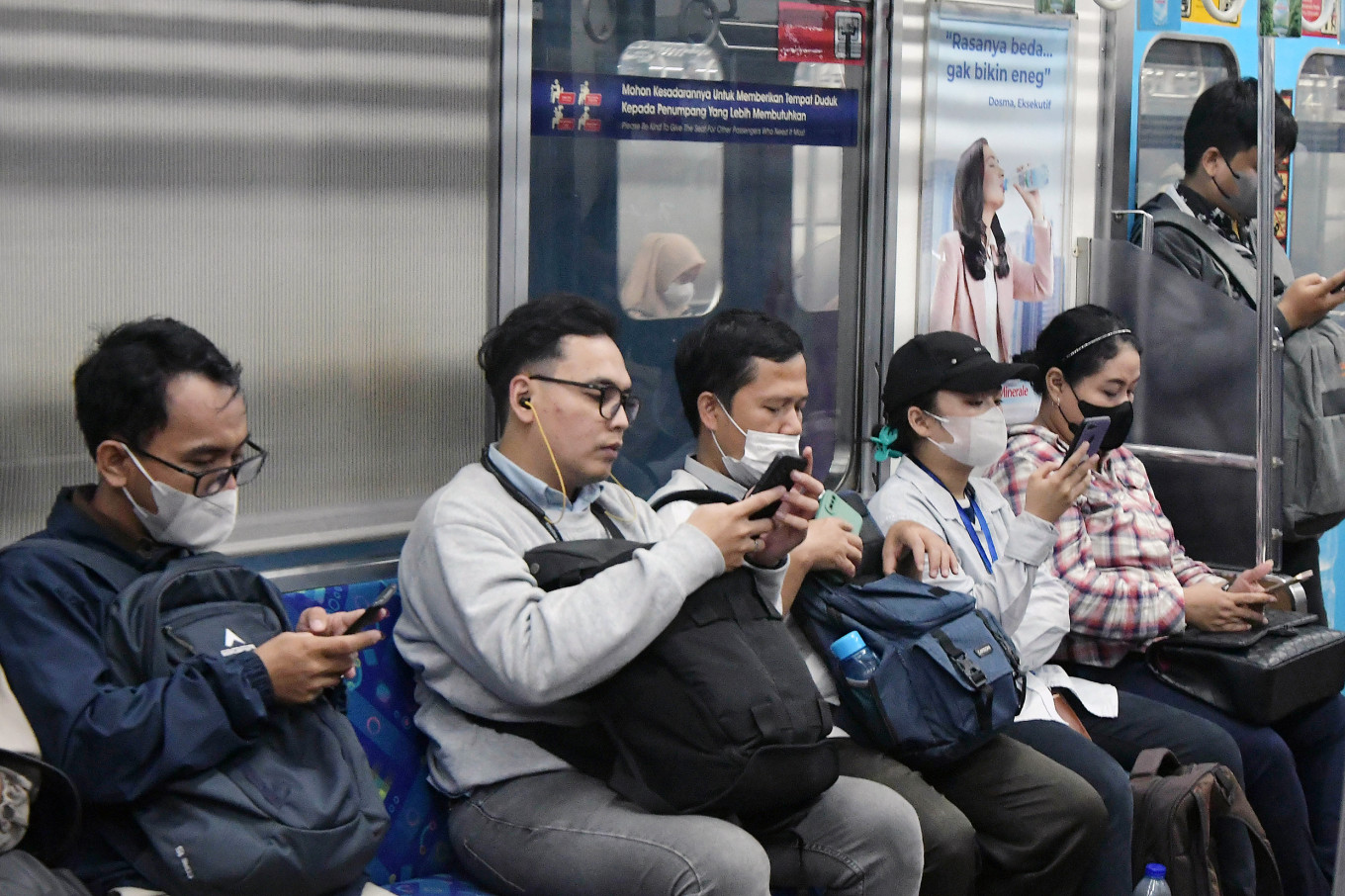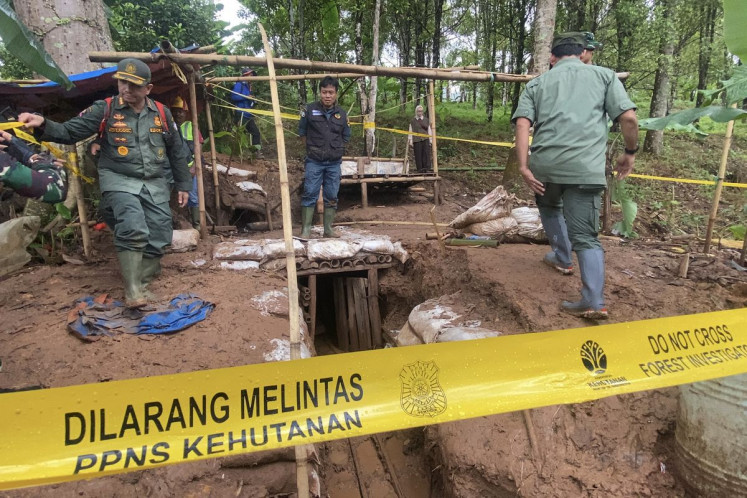Popular Reads
Top Results
Can't find what you're looking for?
View all search resultsPopular Reads
Top Results
Can't find what you're looking for?
View all search resultsCOVID-19 a lesson to better prepare for next pandemic
As a region, ASEAN has also responded swiftly in addressing the growing crisis, including through the establishment of a COVID-19 Response Fund to boost emergency stockpiles for future outbreaks.
Change text size
Gift Premium Articles
to Anyone
 Passengers use their gadgets on board a commuter line train at Bekasi Station, West Java, on June 12, 2023. The Transportation Ministry has issued a circular allowing healthy train passengers to travel without face masks while recommending that people still get COVID-19 vaccines. (Antara/Fakhri Hermansyah)
Passengers use their gadgets on board a commuter line train at Bekasi Station, West Java, on June 12, 2023. The Transportation Ministry has issued a circular allowing healthy train passengers to travel without face masks while recommending that people still get COVID-19 vaccines. (Antara/Fakhri Hermansyah)
A
s many as 194 countries are currently negotiating the world’s first pandemic accord. Born out of our lessons in response to the COVID-19 pandemic, governments have agreed that we need effective mechanisms and measures in place to be able to better prevent, prepare for and respond to the next big threat.
In addition, there is an ongoing negotiation on amendments to the International Health Regulations (IHR) 2005 to ensure they are fit for purpose during a pandemic.
The states negotiating in the two processes include every country in Southeast Asia.
In our region, we know both how devastating pandemics and other major public health events can be, and how to build resilience in our health systems and societies and the tools and mechanisms necessary to respond. Such experiences will prove to be invaluable in the development of the pandemic accord.
Asia was the source of the first reported cases of COVID-19 and the Severe Acute Respiratory Syndrome (SARS). It also has had long experience in preventing and responding to outbreaks of diseases such as Nipah virus, dengue fever and malaria.
We are a region that has the muscle memory to know how to deal with outbreak threats. We already have significant skills and capacities in the areas of prevention, preparedness and response.
Countries in the Mekong Delta responded rapidly, and effectively, to COVID-19. India has built one of the world’s largest vaccine manufacturing infrastructures. South Korea showed great determination in its response to the pandemic.
As a region, ASEAN has also responded swiftly in addressing the growing crisis, including through the establishment of a COVID-19 Response Fund to boost emergency stockpiles for future outbreaks. The regional grouping is finalizing the establishment of an ASEAN Centre for Public Health Emergencies and Emerging Diseases (ACPHEED).
Lessons from the region can shape the contents of the pandemic accord and the amended IHR.
But we cannot rest here. The world needs to do more. We saw the inequities of vaccine distribution during COVID-19, with many countries in the Global South not having sufficient supplies nor their own vaccine production capacity being forced to the back of the queue. Sharing pandemic pathogens and genome sequence contribute to risk assessment, prompt introduction of containment measures and research and development for pandemic response product. The world would also benefit from greater collaboration and financing for pandemic and other health emergency response.
We are doing more. If the pandemic accord is agreed, it would improve the world’s unity of response, the equity with which that response is carried out, and the speed and efficacy of preparedness and response measures.
Member states of the World Health Organization have already held five negotiating sessions for the Pandemic Accord and are preparing for their sixth, which is due to resume on July 17 (today) in Geneva.
The drafting group for this accord hopes to arrive at a First Draft, which can then be presented to all 194 countries for negotiation.
The meeting will be followed by the negotiations for the amendment of the IHR starting July 24. This would be the fourth meeting of the WHO Working Group on the IHR amendments.
This is important – the fact that all 194 countries will be involved in negotiating and influencing their content. Only sovereign governments can decide what they want to be included in the accord, and it will only be governments that ratify the eventual accord, which member states have recommended take place in May 2024 during the next World Health Assembly.
However, it is also important to note that the two processes are inclusive in nature, and engage all relevant stakeholders.
The pandemic accord and the IHR amendments represent a generational opportunity to protect future generations from the threat of pandemics. It is so important that we heed the lessons learned from COVID-19 to make quantum improvements in the way the world prevents, prepares for and responds to pandemic threats.
Join us in supporting your government in agreeing on the best-possible pandemic instruments for us all with operational equity at the core. We all stand to benefit.
***
Viroj Tangcharoensathien is senior advisor on global health to Permanent Secretary Office, Ministry of Public Health, Thailand, and representative of the WHO South-East Asia Region. Grata Endah Werdaningtyas is deputy permanent representative to the Permanent Mission of Indonesia to the UN, WTO and other international organizations in Geneva, Switzerland and representative of the WHO South-East Asia Region.










